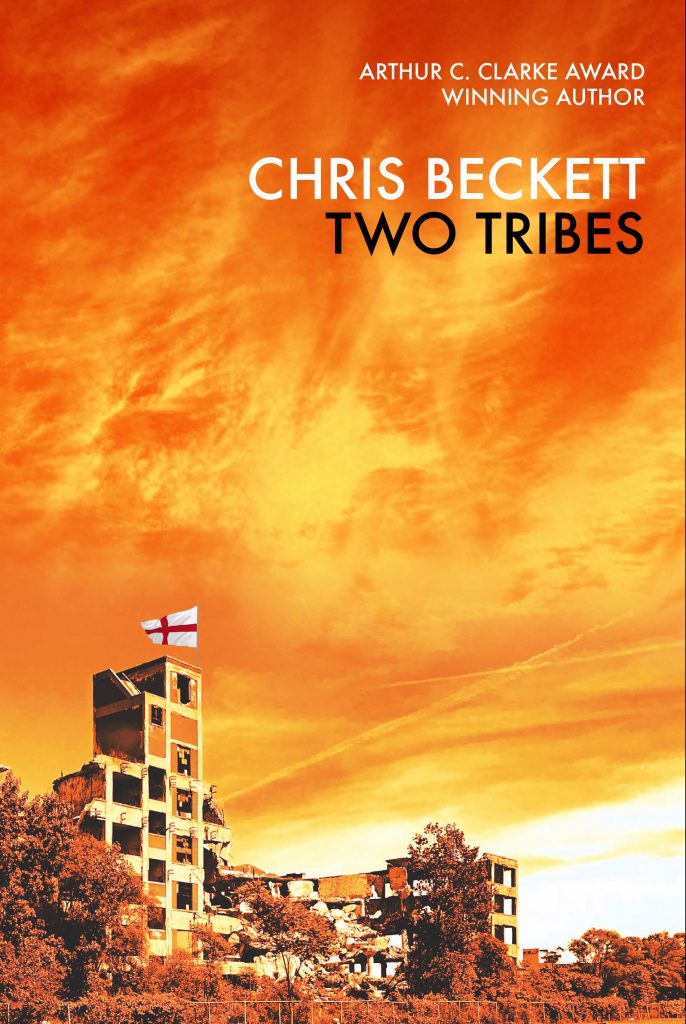I am a slow learner. It was something of a revelation when I found out that the stories about the knights of the Round Table I enjoyed as a child were actually written for real knights, and that these real knights were not necessarily very nice people at all. (One of the sources of the Grail story, for instance, The High Book of the Grail, is dedicated to a knight who was a leading figure in two notorious bloodbaths: the Fourth Crusade against Constantinople, and the Albigensian Crusade against the Cathars in the south of France.) It struck me then that most fiction is actually written to flatter its readers by making them, or people like them, the heroes of the story.
When it comes to Brexit it would have been an easy matter for me, as a ‘remain’ voter who writes science fiction, to do something of that kind. I could, for instance, have written a future dystopia, in which a ghastly caricature of the ‘leave’ camp is in charge, and noble, liberal, internationalist types are fighting a brave war of resistance. I’m pretty sure a lot of people would have welcomed it.
But I don’t think it’s my job to exaggerate the ugliness of rival tribes, or big up the heroism of my own. If you want a simple ‘goodies versus baddies’ view of events, you can find it on social media, where whole armies of people are busy, night and day, proving how utterly and irredeemably bad those others are, and how very good they are. I’m sure this serves some useful psychological purpose, but it really isn’t my thing.
I don’t deny that there are bad people out there. And some of the nastiest and most mean-spirited aspects of British culture were certainly evident on the ‘leave’ side. But an exclusive focus on the shortcomings of others does tend to blind us to our own, and what I noticed in aftermath of the 2016 referendum was that, on the ‘remain’ side too, some pretty ugly things were crawling out of the shadows. Specifically I noticed the spread of a phenomenon which I’ve been observing for some time: middle class folk who, while describing themselves as on ‘the left’, somehow still feel free to express a sneering contempt for people less clever or less educated than themselves.
I say ‘ugly’, I say ‘nasty’, but the truth is that human beings are human, whatever tribe they belong to, and my objective, in writing Two Tribes, as in my other books –America City is probably the closest- was to write a story that looked at this particular time, not through the lens of ‘them and us’ but simply as human beings responding in different ways to their own particular circumstances.

RE: “My objective was to write a story that looked at this particular time, not through the lens of ‘them and us’ but simply as human beings responding in different ways to their particular circumstances, as humans beings do.”
This theme really resonates throughout the Dark Eden trilogy, too, especially in Daughter of Eden.
In these politically polarized times, it’s refreshing to read such nuanced SF, with characters who behave like real humans, and not just paper-thin archetypes. Tribalism is fascinating and horrifying, and over the past year I’ve found it deeply comforting to read your stories precisely because they foster empathy and challenge the all-too-tempting mindset of “us versus them.”
Thank you Dale. It means a lot to me that you’ve found my stories helpful. Daughter of Eden is in some ways my favourite of my books.
I loved the book. It was challenging because I was/am guilty of that tribalism. This book opened my eyes. Thank you. And now I am really enjoying Tomorrow. And after that I intend to read all your other books, starting with Dark Eden. It makes me very happy when I discover a new writer whose work really resonates and challenges so thank you again. I hope you write many more!
Thank you Helen. So pleased you got something from it.